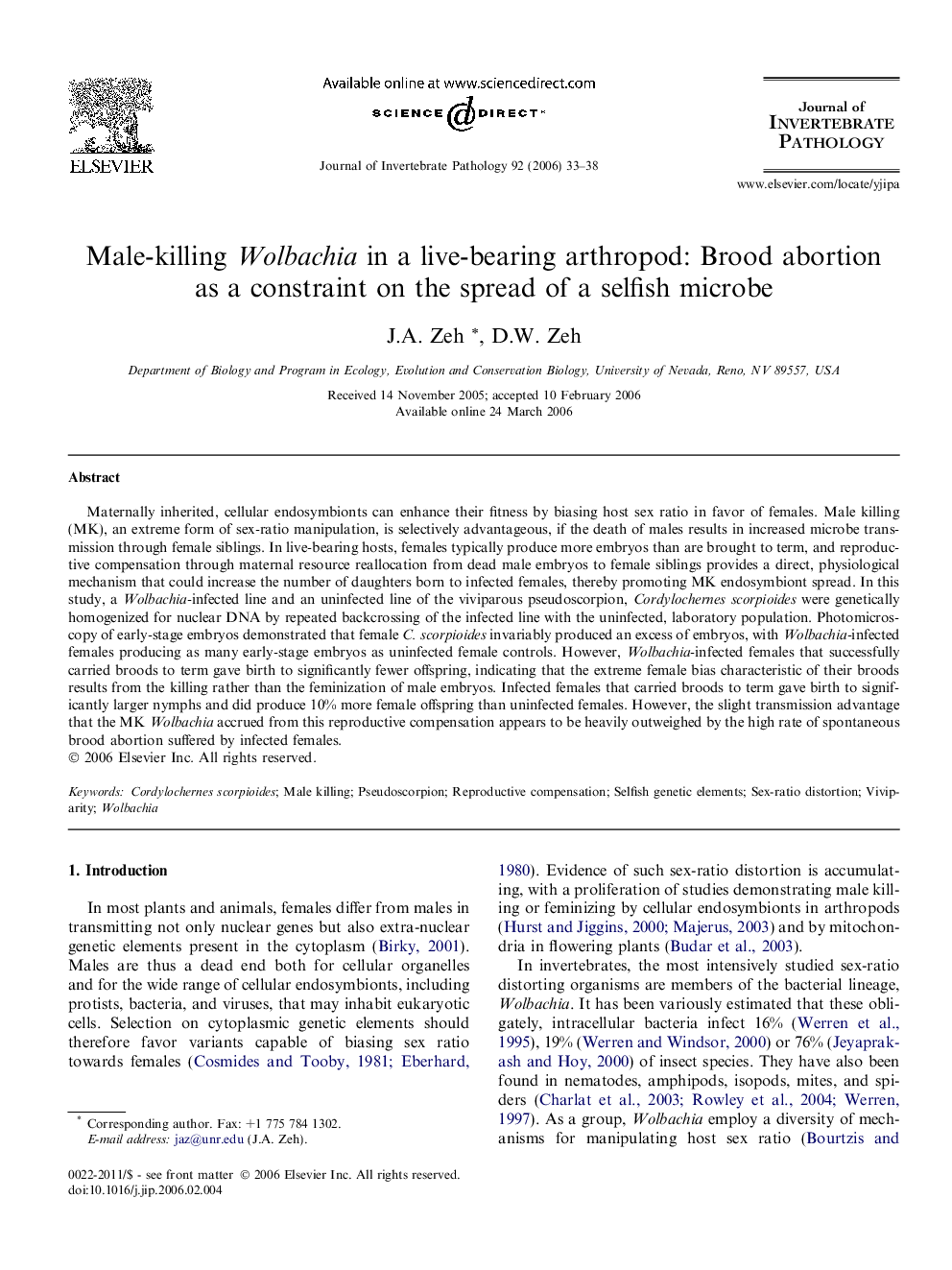| Article ID | Journal | Published Year | Pages | File Type |
|---|---|---|---|---|
| 4558837 | Journal of Invertebrate Pathology | 2006 | 6 Pages |
Maternally inherited, cellular endosymbionts can enhance their fitness by biasing host sex ratio in favor of females. Male killing (MK), an extreme form of sex-ratio manipulation, is selectively advantageous, if the death of males results in increased microbe transmission through female siblings. In live-bearing hosts, females typically produce more embryos than are brought to term, and reproductive compensation through maternal resource reallocation from dead male embryos to female siblings provides a direct, physiological mechanism that could increase the number of daughters born to infected females, thereby promoting MK endosymbiont spread. In this study, a Wolbachia-infected line and an uninfected line of the viviparous pseudoscorpion, Cordylochernes scorpioides were genetically homogenized for nuclear DNA by repeated backcrossing of the infected line with the uninfected, laboratory population. Photomicroscopy of early-stage embryos demonstrated that female C. scorpioides invariably produced an excess of embryos, with Wolbachia-infected females producing as many early-stage embryos as uninfected female controls. However, Wolbachia-infected females that successfully carried broods to term gave birth to significantly fewer offspring, indicating that the extreme female bias characteristic of their broods results from the killing rather than the feminization of male embryos. Infected females that carried broods to term gave birth to significantly larger nymphs and did produce 10% more female offspring than uninfected females. However, the slight transmission advantage that the MK Wolbachia accrued from this reproductive compensation appears to be heavily outweighed by the high rate of spontaneous brood abortion suffered by infected females.
